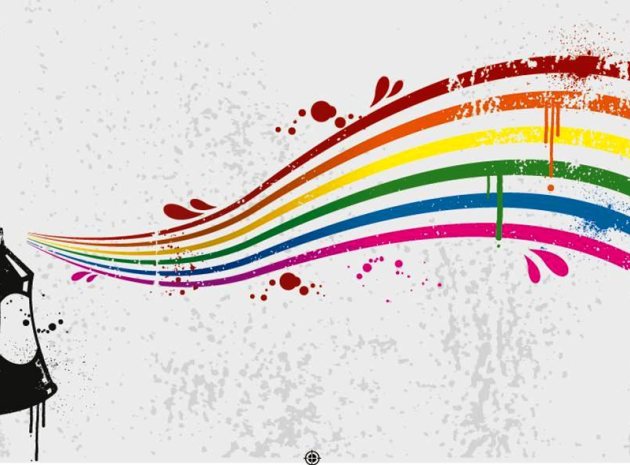I was finishing a book signing after a school event, and this boy (he was about 14), and his best friend came up to me. I’ve found the kids who need to talk always wait until last, when everyone else has drifted off. This lad had so much sadness in his eyes – it was heartbreaking. He didn’t say much, so his mate spoke for him: he’d recently come out to his parents, and they weren’t being at all supportive. “Please, just tell him it won’t always be like this,” the friend implored me.
I was talking to one of the teachers about it afterwards. “They connect with you because you speak so much from your own experience,” she told me. “It’s so good for the kids who are struggling with their sexuality, school or just life to hear from someone who has been through it and managed to come out the other end, smiling.”
Authentic narratives
The ‘own voices’ argument can be a contentious issue in the writing community, with some authors resenting the notion that they shouldn’t write outside of their experience when it comes marginalised characters. It’s a complex and nuanced debate, but for me, this isn’t an argument about quality as such – writers constantly put themselves into the lives of others, and have a range of techniques at their disposal to achieve that. Rather, this is about visibility.
When LGBTQ+ kids see LGBTQ+ authors telling LGBTQ+ stories, it’s a particularly powerful thing. These are people who are just like them telling stories from their direct experience – authentic, real, first-hand. It’s important for these teens to know their lives and their stories are valued and valid – and that they should be proud of them.
If you’ve been bullied, if your parents aren’t supportive, if you’ve repeatedly been told that who you are is bad or disgusting, then feeling valued and proud become really important things. And when gay kids can so often be given the impression they’ll always be unhappy, they also need to see people who are just like them succeeding, leading, and living fulfilling lives. Engendering pride and positivity is surely one of the most important arguments for supporting own voices books.
Next generation
Meanwhile, at an industry level, publishing needs diversity. Rich, varied experiences make good books, but for all the work many publishers are doing to try and increase LGBTQ+ representation amongst authors, they need the raw material to work with in the first place. For years, queer authors were turned away, told that gay stories didn’t sell. You cannot ignore the effect of what turning a group of people away time and time again does. Eventually, those people stop coming. We need the next generation of LGBTQ+ authors to see that their stories are important, and that they’re wanted – but at the grassroots, they need to see people like them actually doing it.
If you’re looking to support and inspire your own LGBTQ+ students with own voices authors and books, Stripes is publishing a whole anthology of LGBTQ+ YA next year, all by own voices authors and illustrators. The anthology itself (#ProudBook on Twitter), would be a great addition to any school library, but will also lead the way to some of the authors out there with work that might really help LGBTQ+ students in the ways I’ve described.
Gay teens deserve (and need) their heroes too. An own voices book can be the difference between a very well-meaning, ‘I sympathise’ and the genuine connection of a shared experience, that says, “I get it, I’ve been there, you’re not alone.” And for the kids that feel they are, that can mean the world.
About the author
Simon James Green is the author of YA novels Noah Can’t Even and Noah Could Never, published by Scholastic, and out now. (simonjamesgreen.com @simonjamesgreen)










